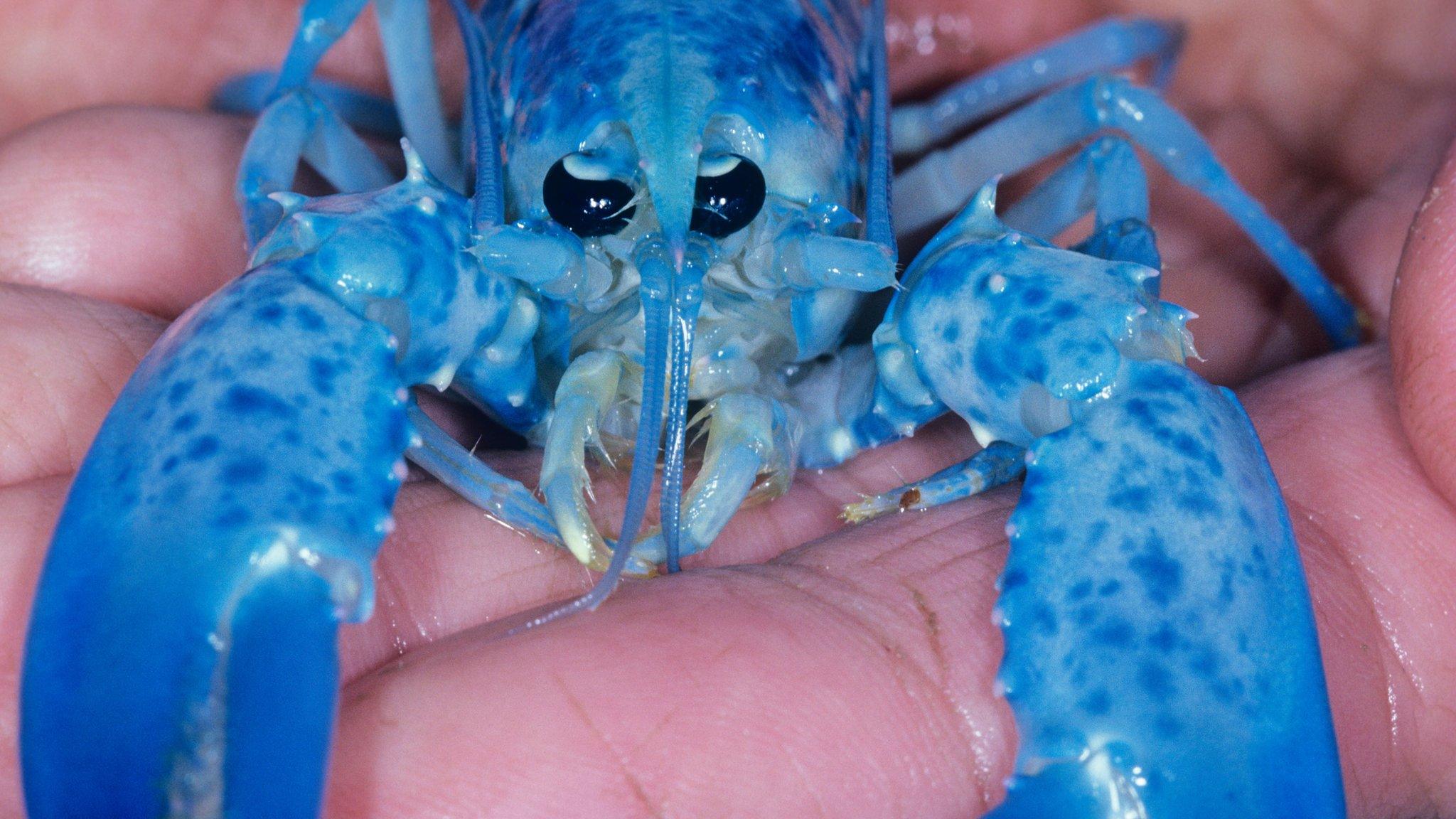Rare blue lobster found in Plymouth Sound
- Published
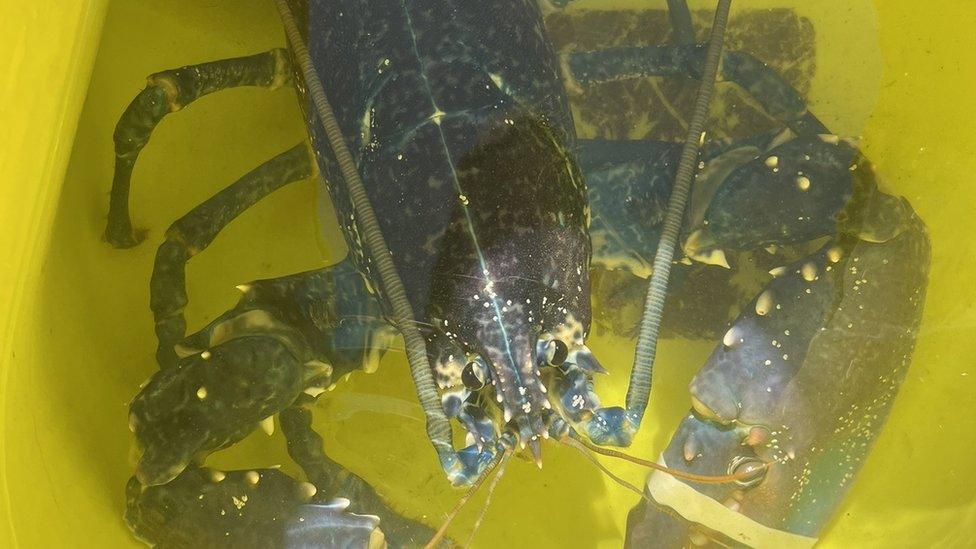
The lobster was thought to have been about 50 years old and female
A rare bright blue lobster has been discovered in Plymouth Sound.
The crustacean's colourful pigmentation is caused by a genetic abnormality which causes the over-production of a protein.
Experts from the National Lobster Hatchery in Padstow said the chance of catching a blue lobster was "approximately one-in-two-million".
Diver Mallory Haas, who released the lobster back into the ocean, said it was "so beautiful".
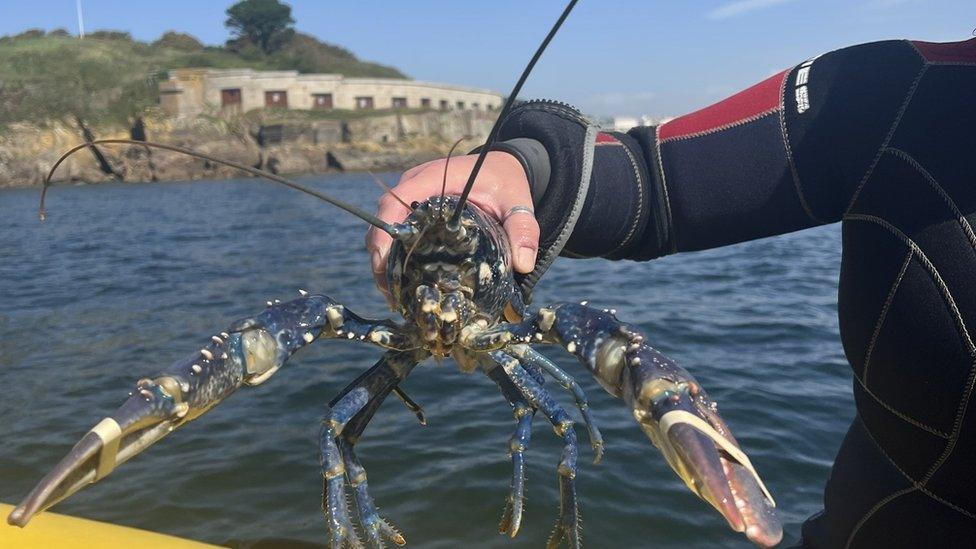
Mallory said she hoped the lobster could now live happily, away from divers and fishermen
Ms Haas, who is also the director of non-profit organisation The Ships Project, was given the rare lobster by a fisherman who wanted it to be returned to the sea.
The Ships Project undertakes research and exploration of maritime historical sites and events, both on land and underwater.
Its crew had been out on a dive near Drake's Island in Plymouth Sound, on the hunt for shipwrecks, when the fisherman gave them the lobster - which she said was thought to have been about 50 years old, and a female.
Ms Haas said: "It was so pretty. I mean, she was just like, the bright blue claws and these lovely colours."
She said after having a good look at the lobster, she returned it to the Sound, in a safe location away from lobster pots and divers.
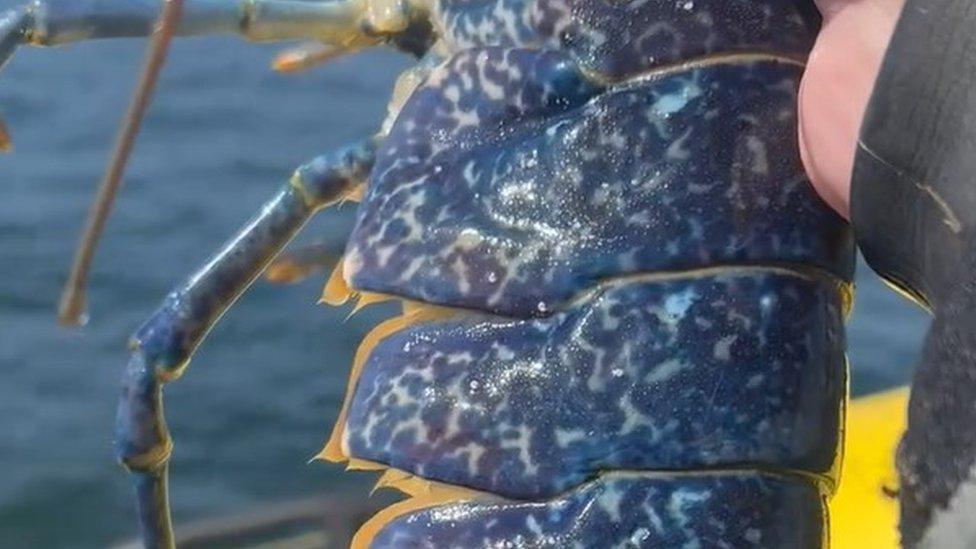
The lobster was captured by a fisherman in a lobster pot in Plymouth Sound
"We obviously wanted to put her back because she's 50 years old and she was just so beautiful.
"So we put her back in a place that divers don't go and there's no fishing, so she can have an extremely happy life, you know, for the next 50 years, because they can live up to 100 years."
Coral Smith, Wembury Marine Centre Officer at Devon Wildlife Trust, said this year had been particularly good for lobsters.
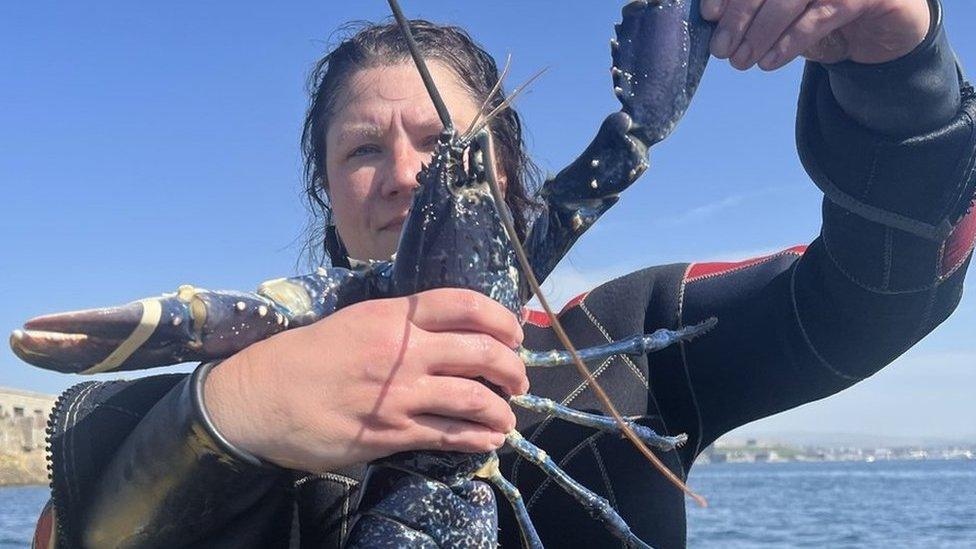
The bright blue pigmentation is caused by the increased production of a certain protein
She said: "This summer has been good year for lobsters, we've had lots of reports of lobster sightings, particularly young lobsters, so if the population is doing better as a whole, then the likelihood of finding a bright blue one might increase as well."
Ms Smith said the warm weather the UK experienced in spring this year could have had an impact on marine wildlife populations.
She said: "It could be that the warmer weather earlier this year... that can cause a really huge plankton bloom which then causes everything else in the marine environment to follow on and benefit."
Ms Smith added: "It has been a good year I think for marine life generally, and whether that's more people out seeing these things or that they're actually better, again is hard to tell."

Follow BBC News South West on Twitter, external, Facebook, external and Instagram, external. Send your story ideas to spotlight@bbc.co.uk, external.
- Published25 January 2023
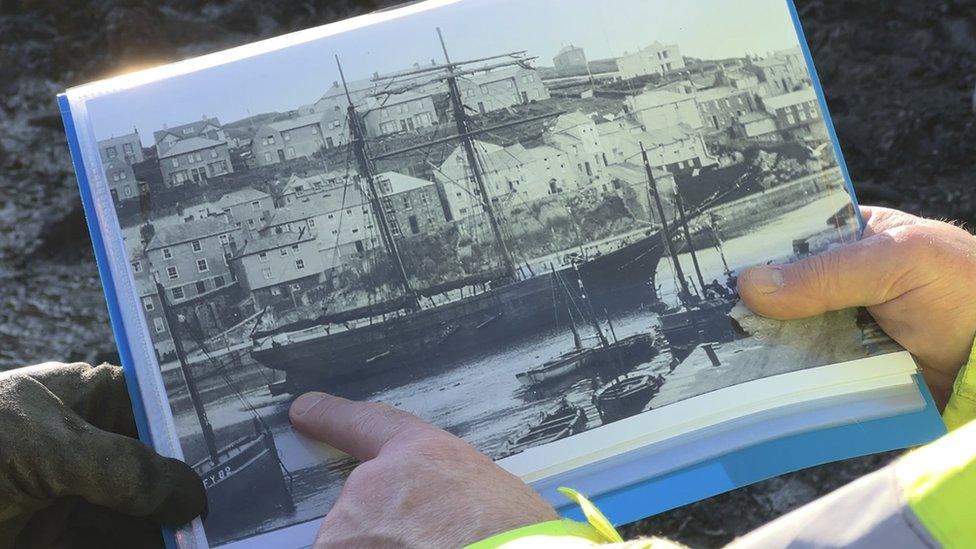
- Published2 March 2022
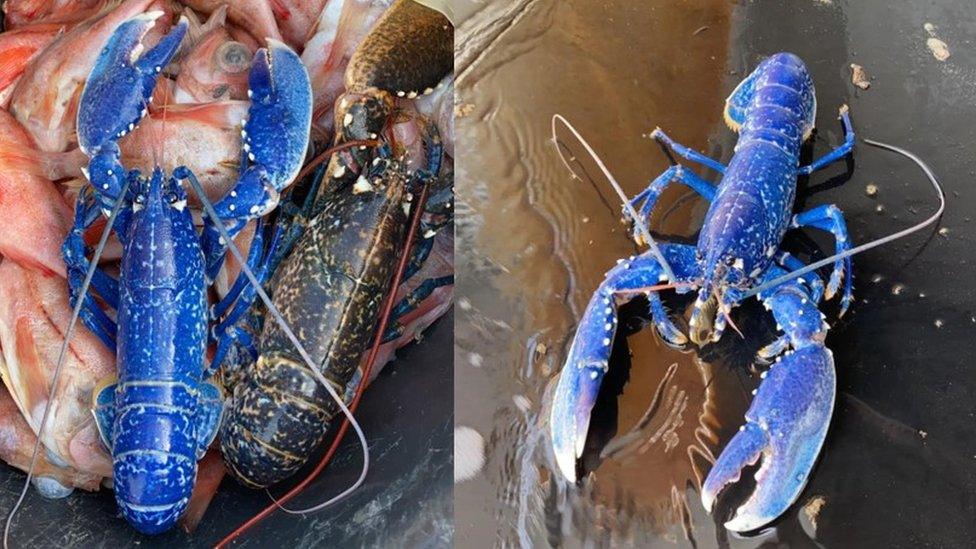
- Published2 September 2021
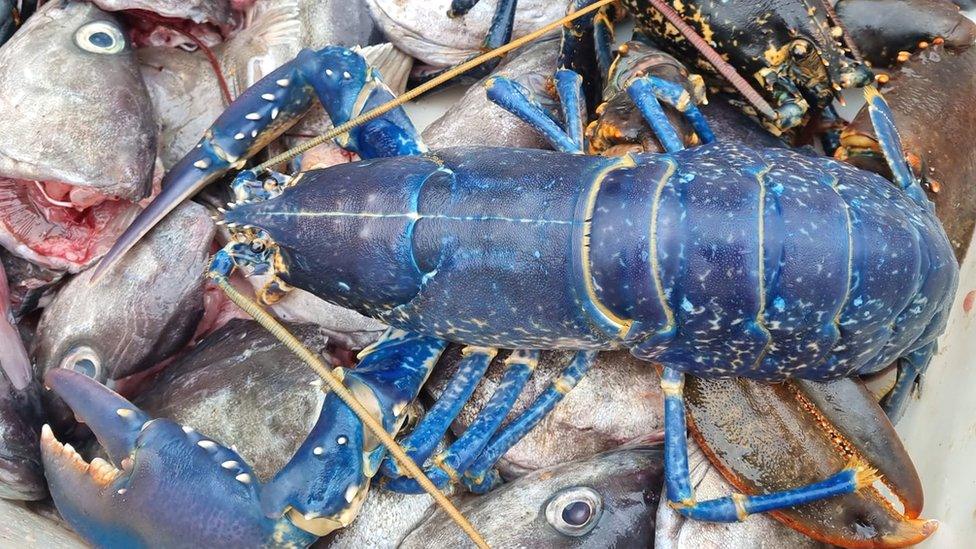
- Published25 May 2016
